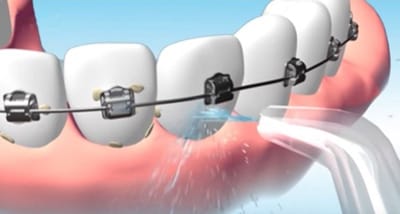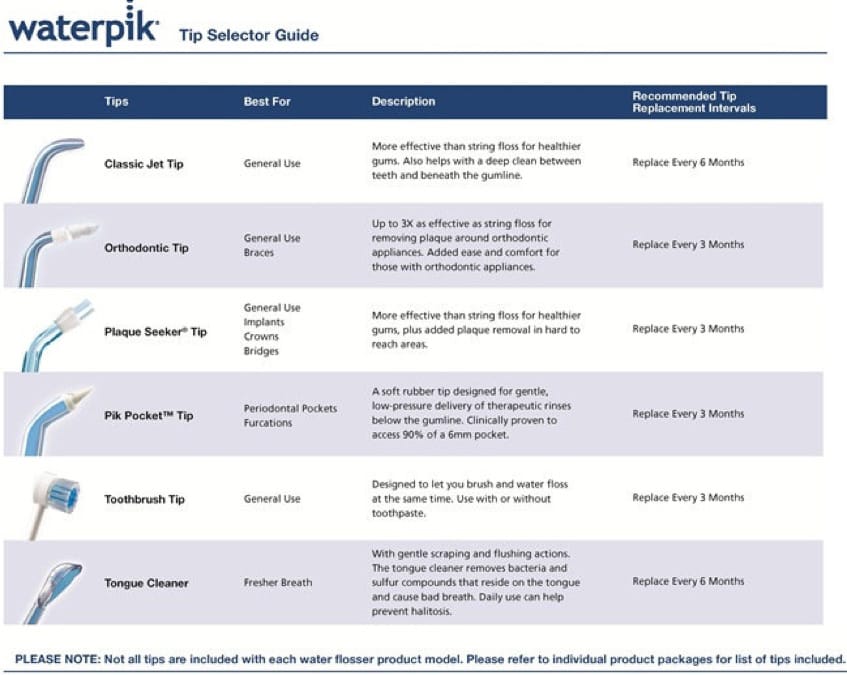A successful orthodontic treatment and a healthy and beautiful smile is the result of a team effort among you, Dr. Henneberry, and your family dentist.
As the patient, you play the key part. It’s up to you to ensure that your treatment plan ends in success. Most importantly, you must keep your teeth clean and maintain good dental hygiene while you’re wearing braces.
Proper dental care will take a little extra time and effort but the results are well worth it, and will help you enjoy the best possible smile from your orthodontic treatment.

Why water flosser you may ask.
Water flosser is gentle on the gums and can result in less bleeding. Water will get behind the metal wires and flush out food particles. Getting to those tough spots we may miss with traditional floss. Even If you do not a water flosser be sure to take the time each night and floss using traditional floss.
Keeping good oral hygiene is our main focus.
Problems That Poor Oral Hygiene Can Cause
Good dental hygiene is critical during orthodontic treatment. Without it, plaque and food can accumulate around your braces.
The bacteria in plaque react with sugars and starches in food and form an acid that can eat away the enamel on your teeth, leading to white marks, cavities or gum disease.
If plaque accumulates around your braces, it can leave permanent stains on your teeth called decalcification. Lines and spots from decalcification will remain on your teeth for life.
Periodontal disease, caused by the build-up of plaque, occurs in three stages. In the first stage, plaque accumulation irritates the gums. Your gums may be puffy or swollen. They may bleed when you brush or floss. This is called gingivitis.
Over time, the build-up of plaque may harden into a substance called tartar. As tartar accumulates, gaps or pockets may form between your gums and teeth. Even more tartar can collect in these pockets. This is called periodontitis.
Pockets of bacteria form and deepen beneath your gums, attacking and destroying the bone that anchors your teeth. This can even cause healthy teeth to loosen or eventually fall out. This is called advanced periodontitis.
Early gum disease is reversible with professional help and good home care, but if it’s ignored it can get worse. Gum disease is usually painless, so you need to pay attention to signs like bleeding, or swollen and puffy gums. Carefully follow Dr. Henneberry and staff’s directions on hygiene to avoid these problems.
Not sure which tip is for you. Here is a guide to help




